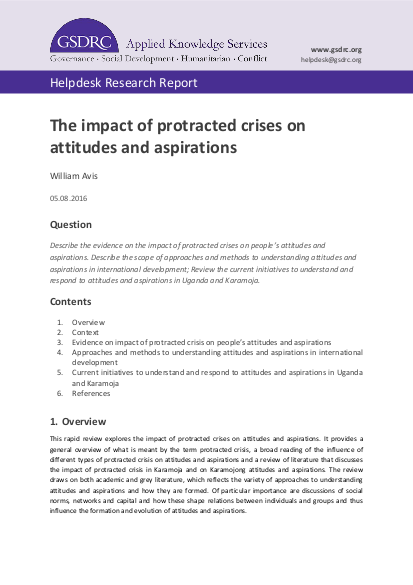
Key findings of this report include:
- Examples of approaches and methods for understanding attitudes and aspirations in international development are drawn from programmes South Africa, the Great Lakes region, Zambia, Rwanda, Yemen and Syria.
- Conflict and crisis can transform existing economic or socio-cultural practices (e.g. on livelihoods, social norms, community power dynamics etc.) that can have a profound effect on attitudes and aspirations. ‘Cultural depression’ has been used to describe the major disruption to norms and values, including attitudes and aspirations, which crises-affected people and societies face.
- There is a need to move beyond the conflict and post-conflict frameworks which dominate analysis in the Karamoja region as new challenges emerge. More knowledge on the changing dynamics of Karamoja society, and people’s attitudes and aspirations on issues such as gender norms and violence, is required to inform future programming.
- Examples of initiatives to understand and explore attitudes and aspirations of the people in Karamoja include: a DFID-funded strategy review, a conflict assessment and a gender and conflict analysis toolkit test from Saferworld, analysis from Human Rights Watch and research about issues such as male youth engagement, urban migration, and the impact of armed conflict.